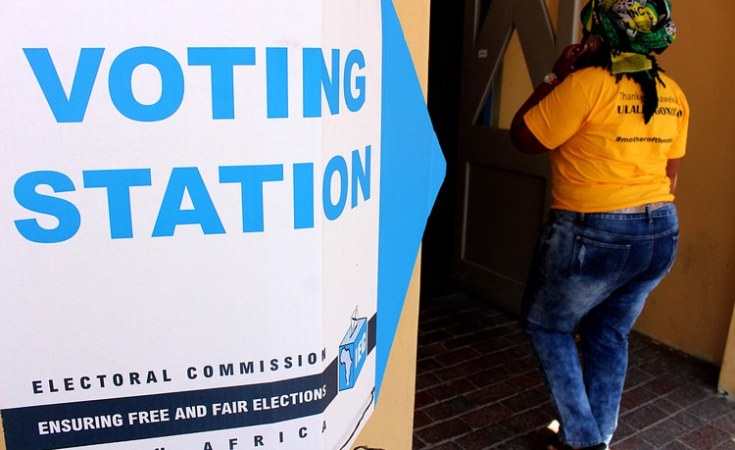South Africa's upcoming elections sparked extensive online chatter, but a crucial question remains: where are the young voters? The discussions on social media, with over 450,000 mentions between February 12th and 29th, reveal a mix of frustrations and hopes, reveals the Center for Analytics and Behavioral Change (CABC).
South Africa, a country with a rich history of political struggles and victories, is at a pivotal moment 30 years after its first democratic polls. The analysis of conversations on the 2024 elections highlights a troubling trend - the disengagement of young people, while senior citizens show continued support of the African National Congress (ANC).
Youth Under Fire
The digital realm is buzzing with discussions, garnering over 450,000 mentions during the reporting period. Within these discussions, a prevailing sentiment emerged, pointing fingers at "two distinct groups hindering political progress: the older generation, who staunchly support the ANC, and the youth, who are accused of apathy towards their civic duty. Criticism of young people revolves around their alleged reliance on influencers to motivate them to register, despite facing challenges such as power outages and unemployment".
There is a prevailing sentiment that young people who don't vote are at fault, and some argue that blame shouldn't be solely placed on the older generation. Posts expressing variations of this sentiment have gained significant traction online. Alongside the criticism of the ANC, there is also a desire for information about alternative parties. The YohVote app matches users with suitable parties and is gaining popularity, according to the CABC.
Social media is becoming the platform for criticizing young people who prefer influencer endorsements in the campaign to register to vote, and the CABC reports a strong backlash, accusing them of waiting for influencers to tell them when to register and even questioning if they rely on influencers to choose their political parties. This "criticism" followed beauty influencer Khethokuhle Ngonyama, also known as Kay Yarms, using her Instagram to encourage her followers to register to vote.
Another concern is that registering to vote doesn't guarantee young people will show up at the polling stations on May 29, sparking debates about whether the presence of influencers at voting stations would motivate young people to participate.
Misinformation and False Claims
Unfortunately, the online environment is rife with misinformation and attacks on media outlets. Media houses, particularly News24 and Daily Maverick, have faced targeted attacks to damage their credibility. The CABC reports that unfounded claims and conspiracy theories are circulating to undermine trust in the media and the electoral process.
"Karyn Maughan, a senior legal journalist at News24, was targeted by posts from the official IOL X account, trying to link her work to Nazi and apartheid propaganda. Unverified emails and claims of deleted posts suggest a conspiracy involving Koos Bekker, Naspers, senior DA, and VF+ officials pursuing Cape independence if the ANC gains a majority in the upcoming elections. Stephen Grootes and the Daily Maverick have been accused of being funded by the CIA. This accusation is a revival of a narrative from 2022 initially started by IOL. It later became apparent that no IOL journalist named 'Jamie Roz' exists."
The online narrative also features a widespread anti-ANC sentiment, fueled by complaints of corruption, unemployment, misuse of state resources, and power outages. Posts discouraging support for the ANC gained significant traction, indicating a growing dissatisfaction among the population. At the same time, people expressing support for the ANC faced online criticism and attacks, illustrating deep political polarization in South Africa.
The key themes dominating include President Cyril Ramaphosa's announcement of the election day on May 29th, the call for voter registration before the February 23rd deadline, and controversies involving the uMkhonto weSizwe Party (MK Party) and the Economic Freedom Fighters (EFF). Hashtags like #VoteMK2024 and #VoteEFF were plentiful, with discussions focusing on topics such as the removal of Judge President John Hlope and the EFF's election manifesto launch in Gauteng.
There were instances of misinformation and unverified allegations specifically targeting the independence of the Independent Electoral Commission (IEC). Anonymous accounts raised questions about the integrity of the IEC due to the leaked ballot, which omitted the MK party and was linked to the ANC's ongoing case against them. These unfounded allegations are concerning as they conflate the ANC's trademark case against the MK party with IEC processes and undermine the independence of the IEC.
Falling outside our date range - we have further noted incitement to violence based on these claims by members of the MK party, which have since been responded to by the IEC
Accusations of "collusion between the IEC and the ANC" also surfaced, saying that the ANC-affiliated trade union SADTU plays a major role in recruiting electoral officials. These allegations originated from Member of Parliament General Bantu Holomisa, and other accounts on X. The IEC addressed some of these claims. Moreover, allegations of collusion between the IEC and the ANC, with claims of a visit to the Zimbabwean electoral commission, highlight the challenges posed by disinformation in the lead-up to the elections.


